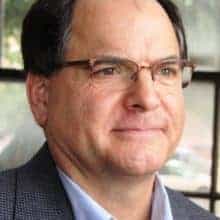Fifteen years ago, Martin Lancaster, the President of the North Carolina Community College System, made a simple statement that got my attention and moved me to frame his words and display them in my office.
Lancaster simply stated: “Community colleges are the only second chance that many students have.”
The reason Lancaster’s statement resonated so strongly is that he was talking directly to me. You see, I understand academic failure because I was one, and I understand this “second chance” because I was given one.
The only things that motivated me in high school were sports, band, chorus, art, and, let’s not forget, girls. Some of you can relate. From my perspective, the school day started at 3:15 p.m. Now as far as math, English, history, social studies, biology and chemistry went—well, not so much.
In high school, I had aspirations to one day be an art teacher. I took every possible art class that I could. By my senior year, my portfolio was well stocked with skilled drawings, paintings, and photographs.
In the spring of my senior year, I applied to five different state schools and took my portfolio to three different interviews. The professors would say, “My, you’re doing third-year art work,” but then they would look at my grades, and my SAT score, which gave the 700 Club new meaning, and soberly share, “I’m sorry, but we can’t help you.”
As I would sit in the lunch room and learn of the colleges my friends were getting accepted to, I would sit quietly, with my head down, not mentioning the rejection letters I had received that week. It was a few weeks before graduation, and it seemed apparent that I was all dressed up and had nowhere to go.
I barely made it out of high school. Actually, I didn’t receive my diploma until about six weeks after graduation because I hadn’t finished my English term paper on Bob Dylan.
Let’s now fast forward 18 years. At age 36, a former educator and member of my church picked me up one day and took me to the local community college. He introduced me to numerous administrators, faculty, and staff.
He guided me into an academic counselor’s office. After speaking with the counselor for about an hour, I was then shuffled to another room where they signed me up for three classes. What?
As I look back, that was one of the scariest and best days of my life. You see, for 18 years after high school, I had internalized that I just didn’t have the right stuff, that college was not for me and that I had sealed my fate with poor performance and lack of focus and discipline in high school.
A community college gave me a second chance to make a first impression — and that has made all the difference.

